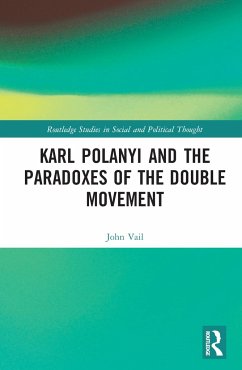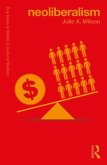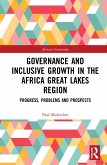This book offers a critical reconstruction of the double movement, the central thesis of Karl Polanyi's The Great Transformation, one of the most influential books of the 20th century. The double movement is the establishment of a free market economy and the subsequent effort by society to ameliorate the destructive effects of the market.
In Polanyi's bold vision, the double movement constituted the hidden gear of social change and historical transformation within capitalism. The book is a forensic examination and critique of Polanyi's argument. It develops an interpretive framework of the double movement as four interrelated social processes: the establishment of the self-regulating market, the rise of a market society that deepens and extends market imperatives, a social protection phase that constrains the market and safeguards society, and the contradictions and crises that result from this clash of social principles.
The book will be an indispensable guide for students and scholars across the social sciences which illuminates the relevance of Polanyi's insights to a critical understanding of the contemporary era -the scourge of insecurity and inequality, the multiple crises of neoliberalism, the rise of right wing populism- as well as those interested in egalitarian and emancipatory alternatives to capitalism.
In Polanyi's bold vision, the double movement constituted the hidden gear of social change and historical transformation within capitalism. The book is a forensic examination and critique of Polanyi's argument. It develops an interpretive framework of the double movement as four interrelated social processes: the establishment of the self-regulating market, the rise of a market society that deepens and extends market imperatives, a social protection phase that constrains the market and safeguards society, and the contradictions and crises that result from this clash of social principles.
The book will be an indispensable guide for students and scholars across the social sciences which illuminates the relevance of Polanyi's insights to a critical understanding of the contemporary era -the scourge of insecurity and inequality, the multiple crises of neoliberalism, the rise of right wing populism- as well as those interested in egalitarian and emancipatory alternatives to capitalism.
"As social scientists re-read their classics, the worthwhile question is: What insights could they offer if they were writing today? John Vail's volume on Karl Polanyi provides the most up-to-date and most inspired answer to that question he addresses to the author of The Great Transformation (1944). Applying the famous "double movement" model to capitalism ending its neoliberal stage, Vail demonstrates the value of Polanyian conceptual keys to the understanding of today's political economy. One of these keys is the multi-faceted idea of "decommodification", a widely employed concept that was first coined fifty years ago in the spirit of Polanyi."
Prof. Claus Offe, Hertie School of Governance, Germany
"This superb book is a masterful reconstruction and critical discussion of Polanyi's fundamental work and its afterlife in the work of Thomas Piketty and others in the twenty-first century."
Prof. William Outhwaite, Newcastle University, UK
"This is a magnificent book. Written beautifully, concisely and with depth, Karl Polanyi and the Paradoxes of the Double Movement could also not be timelier. John Vail sheds new light on the continuing significance of Polanyi's understanding of the contradictions between capitalist markets and democracy as it evolves from the nineteenth century to the post-World War II era and the present. Vail's erudite explanation of the tension between insecurity and inequality, on the one hand, and the rise of right-wing populism, on the other, leads to a unique exploration of Polanyi's double movement and its possible transcendence - providing a compass for potential transformation, decommodification, and social justice. This highly accessible book is a must for anyone who wishes to gain a thorough understanding of current crises and future possibilities."
Prof. Micheline Ishay, Josef Korbel School of International Studies, University of Denver, USA
"John Vail's book deserves a wide readership. Vail avoids polemics against other scholars as well as an overly reverential treatment of Polanyi's text. Instead, he explores both the strengths and weaknesses of Polanyi's analysis and mobilizes the most relevant historical scholarship to evaluate Polanyi's interpretations. He leaves the reader with concepts that brilliantly illuminate our own era of market fundamentalism."
Fred Block, Research Professor of Sociology, University of California, Davis, USA
Prof. Claus Offe, Hertie School of Governance, Germany
"This superb book is a masterful reconstruction and critical discussion of Polanyi's fundamental work and its afterlife in the work of Thomas Piketty and others in the twenty-first century."
Prof. William Outhwaite, Newcastle University, UK
"This is a magnificent book. Written beautifully, concisely and with depth, Karl Polanyi and the Paradoxes of the Double Movement could also not be timelier. John Vail sheds new light on the continuing significance of Polanyi's understanding of the contradictions between capitalist markets and democracy as it evolves from the nineteenth century to the post-World War II era and the present. Vail's erudite explanation of the tension between insecurity and inequality, on the one hand, and the rise of right-wing populism, on the other, leads to a unique exploration of Polanyi's double movement and its possible transcendence - providing a compass for potential transformation, decommodification, and social justice. This highly accessible book is a must for anyone who wishes to gain a thorough understanding of current crises and future possibilities."
Prof. Micheline Ishay, Josef Korbel School of International Studies, University of Denver, USA
"John Vail's book deserves a wide readership. Vail avoids polemics against other scholars as well as an overly reverential treatment of Polanyi's text. Instead, he explores both the strengths and weaknesses of Polanyi's analysis and mobilizes the most relevant historical scholarship to evaluate Polanyi's interpretations. He leaves the reader with concepts that brilliantly illuminate our own era of market fundamentalism."
Fred Block, Research Professor of Sociology, University of California, Davis, USA








